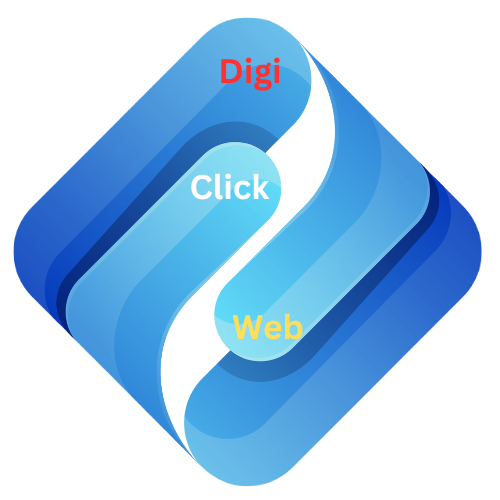Artificial Intelligence (AI) has revolutionized the digital marketing landscape, offering powerful tools to enhance performance, increase engagement, and drive business growth. By leveraging AI across multiple aspects of your digital marketing efforts, you can gain a competitive edge. Here’s how you can harness AI for your digital marketing success through key highlighted topics:
1. AI Analytics
AI analytics is the backbone of smart decision-making in digital marketing. By analyzing vast amounts of data, AI can uncover hidden patterns and insights that humans might miss, enabling marketers to make data-driven decisions that optimize performance.
Practical Application:
Campaign Insights: AI analytics tools provide real-time insights into campaign performance, allowing you to adjust strategies dynamically for better outcomes.
Audience Segmentation: AI helps identify key audience segments based on behaviors and preferences, ensuring more effective targeting and content delivery.
2. Chatbots Engage
AI-powered chatbots are transforming customer engagement by offering real-time, personalized support. They can handle a wide range of tasks, from answering FAQs to providing product recommendations, thereby improving customer satisfaction and freeing up human resources for more complex tasks.
Practical Application:
24/7 Customer Support: Chatbots provide instant responses to customer inquiries, enhancing the customer experience and boosting retention.
Conversational Marketing: AI-driven chatbots can guide potential customers through the buying journey, increasing conversions and sales.
3. Content Creation
AI is now a crucial part of the content creation process. From generating content ideas to optimizing written material, AI tools can assist marketers in producing more relevant and engaging content at scale. While AI doesn’t replace human creativity, it does augment it by providing valuable insights.
Practical Application:
Automated Content Suggestions: AI can analyze trending topics and audience preferences to recommend content ideas that are more likely to resonate with your target audience.
Content Personalization: AI tools can personalize content for different audience segments, improving engagement and relevancy.
4. Personalized Ads
AI enables more sophisticated and accurate ad targeting by analyzing user data to predict what kind of ads will resonate with specific audiences. This ensures that your marketing budget is spent efficiently, delivering personalized messages to the right users at the right time.
Practical Application:
Real-Time Ad Targeting: AI algorithms can adjust ad targeting on the fly based on real-time data, improving the effectiveness of your campaigns.
Dynamic Ad Content: AI can create personalized ad experiences by tailoring the content and messaging to individual users, resulting in higher engagement and conversion rates.
5. SEO
AI is a game-changer for SEO, as it helps marketers optimize their websites more effectively by analyzing search trends, user behavior, and algorithm changes. AI-driven SEO tools can predict future search trends and provide recommendations on how to maintain or improve search engine rankings.
Practical Application:
Content Optimization: AI can analyze content performance and suggest improvements for SEO, such as keyword usage, meta descriptions, and title tags.
Voice Search Optimization: With the rise of AI-driven voice search, optimizing your content for natural language queries is essential to staying relevant in search results.
6. Smart Emailing
AI makes email marketing smarter and more effective by automating personalization and timing. It analyzes user behavior and preferences to predict the best time to send emails and craft messages that resonate with individual recipients.
Practical Application:
Behavioral Triggers: AI can send automated emails based on specific customer actions, such as cart abandonment or product interest, to increase engagement and conversions.
Predictive Personalization: AI can predict the type of content a user is most likely to engage with and customize email campaigns accordingly, resulting in higher open and click-through rates.
7. Future Trends
AI not only helps optimize current marketing efforts but also allows you to anticipate and prepare for future trends. By analyzing large data sets and identifying emerging patterns, AI can provide insights into upcoming consumer behaviors, market shifts, and industry innovations.
Practical Application:
Trend Forecasting: AI tools can analyze market data and predict emerging trends, allowing you to stay ahead of the competition and align your strategies with future consumer demands.
Innovation Adoption: By staying informed of AI-driven future trends, you can adapt your digital marketing strategy to incorporate new technologies and techniques as they arise.
8. Predictive Analysis
At the heart of AI’s power is predictive analysis, which allows marketers to forecast future behaviors and trends based on historical data. This helps in optimizing marketing efforts and resource allocation by focusing on high-value opportunities that are most likely to yield positive results.
Practical Application:
Customer Behavior Prediction: AI can predict customer behaviors such as purchase intent or churn, allowing you to create targeted campaigns that address these outcomes.
Marketing ROI Forecasting: Predictive analysis tools can forecast the ROI of different marketing strategies, enabling better investment decisions.
Conclusion
AI offers immense potential to optimize and transform digital marketing efforts, from predictive analytics and personalized ads to smart emailing and content creation. By integrating AI across your marketing strategy, you not only enhance efficiency and performance but also unlock new opportunities to engage with your audience more effectively. As AI continues to evolve, the key to success lies in understanding how to leverage its power strategically—adopting the right tools and tactics to stay ahead of the competition and drive sustained growth.

